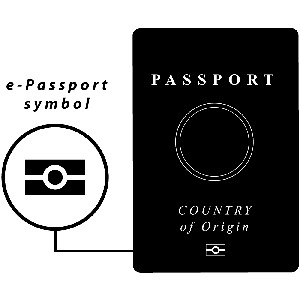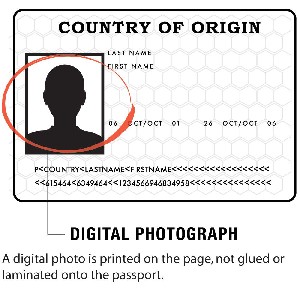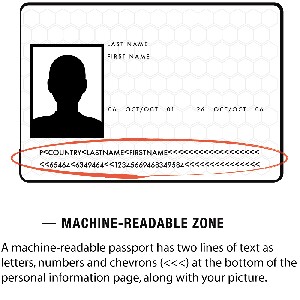There are a number of ESTA requirements that applicants must meet to secure an approval of their travel authorization applications. Many of the ESTA requirements are consistent with those introduced by the Visa Waiver Program in 1988. This page is continuously updated to reflect the most recent changes to the rules laid down by the Department of Homeland Security (DHS).
You must have a passport from one of the following 42 countries: Andorra, Australia, Austria, Belgium, Brunei, Chile, Croatia, Czech Republic, Denmark, Estonia, Finland, France, Germany, Greece, Hungary, Iceland, Ireland, Israel, Italy, Japan, Latvia, Liechtenstein, Lithuania, Luxembourg, Monaco, Netherlands, New Zealand, Norway, Poland, Portugal, Qatar, Republic of Malta, San Marino, Singapore, Slovakia, Slovenia, South Korea, Spain, Sweden, Switzerland, Taiwan, United Kingdom.
You must have an electronic passport with a chip (the chip contains the passport holders' biometric data). From April 1st, 2016, all passengers traveling to the US using the ESTA program must have an e-Passport with an electronic chip, as pictured. NOTE: you will not be eligible to apply for an ESTA if the passport you will be using to visit the U.S. does not have an electronic chip. If it cannot be ascertained that your passport has an electronic chip, then you may be denied boarding on inbound U.S. aircraft.
You must have a passport that also contains a machine-readable section on the biographic page.
Your passport must be valid at the time of applying for ESTA and at the time of your departure to the U.S. If your ESTA approval expires while you are in the U.S. you do not need to apply for a new ESTA but ensure you do not remain in the country for a total of 90 days during your visit. You cannot renew an ESTA application whilst in the United States. If your ESTA expires you must depart the country within 90 days of when your passport was stamped at the most recent U.S. border crossing. Visitors wishing to stay in the United States for more than 90 days must obtain a visa by visiting the nearest U.S. Embassy or Consulate and apply for the appropriate visa based on their travel purpose.

 Electronic Chip in Passport
Electronic Chip in Passport

 Digital Photograph on Passport
Digital Photograph on Passport

 Machine Readable Code on passport
Machine Readable Code on passport
VWP travelers arriving into the U.S. by land, air or sea must hold a return ticket to their home country or an onward ticket to another non-U.S. destination. If traveling on an electronic ticket, a copy of the itinerary must be carried for presentation to U.S. immigration at the port of entry.
Non-VWP eligible travelers entering the U.S. by land from Canada or Mexico must be in possession of a completed digital form I-94.
If transiting the United States to a destination in Canada, Mexico or the adjacent islands, you may re-enter the United States on the return journey using any mode of transport, as long as the total visit, including both periods of time spent in transit and in Canada, Mexico or the adjacent islands, does not exceed 90 days.
If transiting to a destination outside of Canada, Mexico or the adjacent islands, the return journey must be on a participating carrier, but need not be within 90 days, as you will be required to make a new application for admission.
If you do not meet all the above requirements, you will need to apply for a visa.
If you wish to stay longer than 90 days in the U.S., or, wish to study for college or university credit, gain employment, work as a member of the foreign press, radio, film, journalists, or other information media, or become a permanent U.S. resident, you must apply for the appropriate visa as your travel purpose does not fall under the Visa Waiver Program guidelines.
If your ESTA application has been refused you will need to apply for a visa if you wish to travel the U.S.
If you made a mistake on the ESTA application, you will need to send an email to the U.S. Customs and Border Protection (CBP) in order to have the change amended on your ESTA application. Visit CBP for more information:
https://help.cbp.gov/s/article/Article-ContactUs?language=en_US
Foreign nationals with minor traffic offences, yet without an arrest and/or conviction, should first apply for an ESTA in order to travel via the VWP, assuming all other requirements are met. Citizens of Visa Waiver Program countries wishing to travel to the United States are not eligible for ESTA if they meet any of the following criteria:
Criminal history includes arrests, convictions, for violent, fraudulent or drug offences. These can also include any involvement in organizations the US deems as being terrorist groups, or violent groups that commit crimes against humanity. If you have previous criminal history, it will likely affect the outcome of your ESTA application.
Travelers who overstay their visits to the United States will find it more difficult to re-enter should they apply again for an ESTA or a visa. This includes, overstayers, people who previously over-stayed their visits in America on previous trip. Individuals with a deportation history in the U.S. would be highly likely to be ineligible for ESTA.
If you have been denied entry into the U.S. or have been denied a U.S. visa through a previous ESTA or other application for a U.S. visa, then you will likely be ineligible to obtain ESTA approval.
If you have a communicable disease, you may find it difficult to obtain a visa or visa waiver to the United States. Such contagious diseases can include Cholera, Diphtheria, Tuberculosis, Plague, Smallpox, Yellow Fever and others. Should you be infected with a contagious disease, you should seek medical attention for treatment prior to applying for an ESTA.
If you are not able to show sufficient proof of ties to your home country, then you may find it difficult to obtain a visa for the USA. This can be in the form of bank statements, investments, employment / work contract, mortgages or other personal property.
You must be able to provide sufficient proof that you are able to support yourself financially whilst staying in America, based on the area where you will be visiting. If you are not in a strong financial state at the time of your journey to America, you may need to show your trip will be financed by someone else.
If you genuinely wish to obtain employment in the USA, you should seek to obtain sponsorship from a US employer who is able to file a petition on your behalf. Travelling to the United States for the purposes of working without pre-authorization is illegal and will result in deportation and possibly in a life-long ban from re-entering the US.
If your travel history includes countries or regions that are on the US State department's areas of concern, such as Algeria, Burma, People’s Republic of China, Cuba, Eritrea, Iran, the Democratic People’s Republic of Korea, Nicaragua, Pakistan, Russia, Saudi Arabia, Tajikistan, and Turkmenistan. If so, then you could find it difficult to obtain any entry clearance into the US. Over the past few years, the United States has also scrutinized travelers that have visited countries such as Cuba, Iran, Iraq, Libya, North Korea, Somalia, Sudan, Syria or Yemen on or after March 1, 2011.
Where you work, study or performed military service is used to determine whether or not you are an applicant that may require additional screening during your embassy interview or when passing through the US Customs.
If your family are on any US watchlists for criminal or terrorist offences, you may face additional questioning at the time of your embassy appointment, as well as at the US border.
If you have dual nationality, in addition to a VWP country citizen, you may be ineligible for ESTA should your second citizenship be for the following countries: Iran, Iraq, North Korea, Sudan, or Syria.
An ESTA visa waiver is required for tourism, business or transit travel of less than 90 days. Failure to obtain an ESTA can lead to denial of entry at the border and a large fine. It is advised to apply as soon as possible.